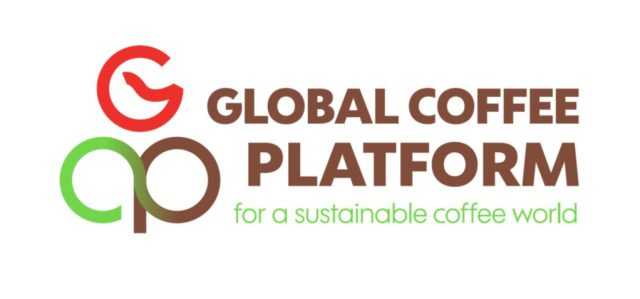BONN, Germany – In a move to advance sector transparency and the purchase of sustainable coffee, GCP has expanded its GCP Reporting on Sustainable Coffee Purchases by adding four newly recognized sustainability schemes and is now inviting more roasters and retailers to get involved in the next round of reporting. The four new schemes – ECOM’ SMS Verified, Neumann’s NKG BLOOM, Olam’s AtSource Entry Verified and AtSource Plus – bring the number of schemes recognised by GCP to nine schemes included in the GCP Reporting on Sustainable Coffee Purchases.
Roasters and retailers, including signatories of the ICO London Declaration, are now invited to participate in the next round of GCP Reporting, which kicks off on February 5th.
Watch a recording of the reporting webinar for roasters and retailers
The inclusion of these new sustainability schemes and programs on coffee purchase for GCP Reporting is the result of a 12-month long process that included research, interviews with stakeholders, a beta testing phase and an external evaluation. The four sustainability schemes and programs meet at least baseline sustainability through the GCP Equivalence Mechanism, which includes not only an assessment on how the schemes meet the requirements of the GCP Baseline Coffee Code but also how the schemes are implemented in practice.
“For the sector, this means that we will be measuring progress on commitments to sustainable sourcing using the same bar, and a common language. Additionally, the equivalence process helped driving improvement in the sustainability schemes through alignment with internationally recognized credible practices and requirements,” said Gelkha Buitrago, Director Programs and Corporate Partnerships.
The reporting programme will culminate with the publication of the second GCP Snapshot, providing the coffee sector with key information about transparent and measurable progress. The already published GCP Snapshot on 2018 Sustainable Coffee Purchases delivered first insights on collective reporting by JDE, Melitta, Nestlé, Strauss and Supracafé, based on GCP recognized Voluntary Sustainability Standards and schemes including 4C, Certifica Minas, Fairtrade, Rainforest/UTZ, C.A.F.E Practices and Nespresso AAA.
“For farmers who often face the demands of multiple sustainability schemes and programs, it hopefully results in reduced efforts as there is wider alignment around baseline sustainability,” said Buitrago adding that additional schemes are currently being assessed under the GCP Equivalence Mechanism, with results expected to be communicated before end of February.
With the reporting framework in place and initial positive results already recorded by participating companies and major coffee sustainability standards, GCP Reporting will track the sector’s move towards sustainable sourcing based on aligned, comparable metrics and provide key information to all segments of the value chain, as well as the public sector.
“We are very pleased that two tiers of our AtSource programme – AtSource Entry Verified and AtSource Plus – have been assessed as being “equivalent” to the Baseline Coffee Code. This, in addition to other benchmarking studies that have been concluded in the recent months as well as the different awards our programme has received, gives us confidence that our sustainability focus and priorities are well aligned with what the coffee sector requires. But more importantly, it will allow our customers to report their AtSource purchases as “sustainable” and thus will help them meet their commitments and targets, which we see as critical to ensure increased transparency going forward.” — Juan Antonio Rivas, Senior Vice-President & Global Head – Sustainability and Business Development – Coffee Olam International Limited / Olam Food Ingredients.
“We are delighted that SMS Verified has been recognised as equivalent to GCP Baseline Coffee Code v 2.1 as this provides an opportunity for roasters to take value from the supply chain interventions and knowledge that SMS has accumulated over many years of working closely with farmers to improve their quality, productivity & methods of farming. [This will] give confidence to our 1,500 agronomists that their efforts have been acknowledged.”
Sue Garnett, Director Sustainable Business Programmes, SMS.
“By participating in the Equivalence Mechanism, we have gained valuable insights to fine-tune our sustainable sourcing strategy NKG BLOOM. We are pleased to participate in the evolution of the coffee sector towards a broader understanding of sustainability, including impact-based approaches”.
Catalina Eikenberg, Neumann Gruppe Head of Sustainable Business Unit.


















